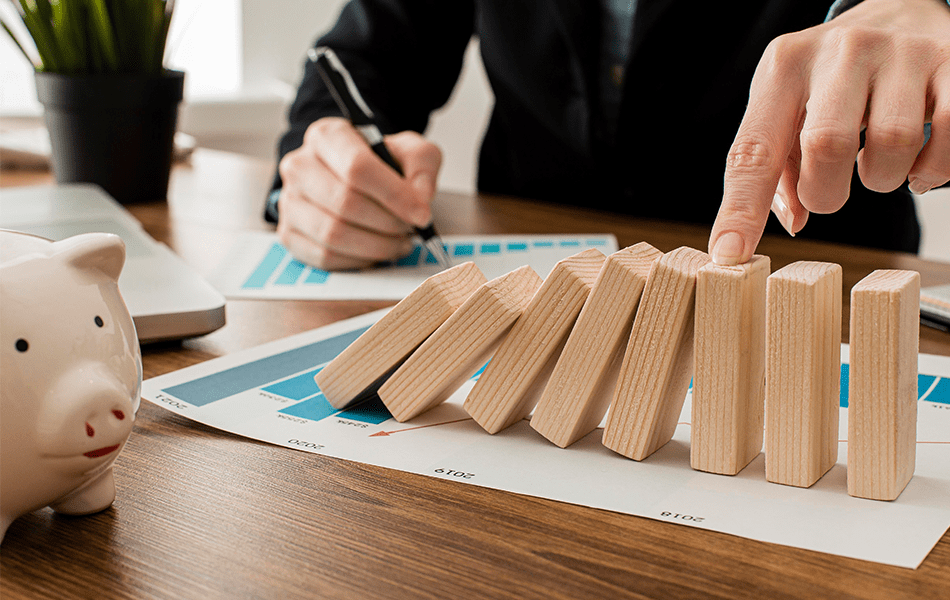Owning a condo unit is a large financial responsibility that requires budgeting for maintenance costs and daily expenses, and for many, it’s one of the first signs of independent living. Aside from common FAQs homeowners and investors may have regarding money and financing, the real estate market, and condo maintenance/repair, a big question revolves around condominiums, and real estate property as a whole, and their value as an asset and/or liability.
What are Assets and Liabilities in Real Estate?
This can be a confusing topic, so we’re going to simplify it as it relates to real estate, and more specifically, condos. A condominium is a building comprised of units that are individually owned as residential property that may sometimes feature shared spaces like a laundry room, gym, or lounge.
The assets owned by a condo owner are the condo itself and its share of common spaces. A liability refers to the risks that come with owning real estate, both financially and in terms of insurance. Let’s figure out what is considered an asset or a liability when it comes to property.
An Explanation of Assets
Your house is an asset and can even be considered one of your long term assets if you decide on keeping it for years to come, either as your residence or as an investment to generate passive income. As we enter old age, property can be one of the best ways to have a stable cash flow when we are no longer able to work. You can also own multiple condos to use as vacation homes if you don’t want to rent them out.
Your balance sheet will list your assets and other related financial items. For a simplified version of the financial definitions, an asset is anything that you are using now or will use in the future. Liquid assets (things that can be turned into cash easily, AKA marketable securities) and accounts receivable. These can be considered to be “short-term assets” or current assets when used within one year. Fixed assets would be considered to be a “long-term asset” since these can not be converted in to cash quickly.
An Explanation of Liabilities
Most people would assume that renovations would inherently generate revenue once their property is sold as these improvements should increase the value of the property; unfortunately, this isn’t always the case and you can end up losing more money than you paid to invest.
As part of home ownership, you must also consider liability insurance in case of accidents. This is especially needed if you are real estate investor because you will be held accountable for accidents that happen on your property. Be sure to research the best liability insurance available to you.
Liabilities can also be found in a balance sheet and this refers to debts owed to other parties. If you took out a loan in order to pay for your property, then this would be considered a liability. Property taxes and mortgage payments can also be considered to be liabilities. Essentially, if you have a liability then you lose money which can result in a negative cash flow.
You should keep in mind that the status of your assets and liabilities can change over time. When planning your financial statement keep your estimations and budget flexible. We encourage you to seek guidance from many financial advisors to ensure that you get the best advice possible
Consider reading Rich Dad Poor Dad by Robert Kiyosaki and Sharon L. Lechter for more advice in using properties to generate wealth, buying and selling on the stock market, and other tips for developing financial literacy.
What is Equity?
Equity refers to what you actually own. It can be calculated by finding what your house is worth and subtracting your mortgage payments. For example, if your condo was worth 2 million pesos and you paid a down payment of 400,000 pesos, then your equity would be 400,000 pesos
When is Your House or Real Estate Considered an Asset?
Honestly, it depends on who you ask. Some say that as a primary residence, your property is not an asset but a liability, simple because “an asset puts money in your pocket” while a “liability takes money out,” according to Robert Kiyosaki. According to him, unless you’re using your property for financial gain and are receiving a positive cash flow, then your house is a liability. Others would say that your home is an asset even if you haven’t completely paid it off.
A Condo as a Business Asset
Many small businesses have opted to operate out of their homes in order to minimize their expenses. You should take note that because affordable condos tend to be smaller, you will need to plan where to place your business items accordingly. This can prove to be difficult for those who wish to separate their personal lives from work/business, however, there are many financial benefits such as:
- Save money on office/storage rental space, food, operating costs, and parking
- No time wasted on the commute back and forth
- Lower start up and investment cost
- Lower risk compared to brick-and-morter (physical) business
The Philippines is a wonderful place to start a business due to the affordability of materials and the many opportunities that are available. Whether you’re a budding entrepreneur or an experienced one, you’d be happy to hear that codos are a good investment that generates income (and can supplement your current income) as rental properties and your personal business office.
What are the Future Economic Benefits of Owning a Condo?
By virtue of owning property, its monetary value will appreciate as time goes on. Furthermore, by adding improvements and renovations, you could even sell it for a higher price than when you got it.
Should I Own my Own Home or Use it as Rental Property? Can I generate income from my Condo?
As we mentioned before, you can earn a cash flow from your condo if you are running a business from it. One example of a business you could run is an Airbnb or temporary residence. If you are located in a big city that attracts a lot of tourists, this may be the path for you. Be aware that operating a business like this from your home where people come and go changes what your assets and liabilities are. Before starting any business, be thorough in your research and weigh the pros and cons.
If you plan to rent out your condo for longer periods of time, be sure to set a rental income for your tenants and look into liability insurance. It’s better to be safe than face a lawsuit later on. Luckily, Asterra provides affordable condos in prime locations that can give you a headstart in this industry.
Do I Need to Use my Condo as Business Hub?
The answer is up to you! We’re sharing a few ideas so that you can keep your options open when it comes to your condo-owning journey. After all, there’s so many different uses for condos. If you’d like to make a pseudo office, that’s great! And if you’d like to keep it as your own personal hangout spot to relax and rewind, that’s great too!
By reading this article, we hope that you learned the differences between an asset and a liability when it comes to condo ownership. To quickly summarize: an asset is something you own or will use while a liability is something that causes you to lose money. It’s not always as clear cut as this, so we’d recommend speaking with a financial advisor and/or an accountant for clarification.
As always, Asterra is happy to assist with any questions you may have. Visit our website to see available condo listings and their inclusions.
Written by: Angela DelosReyes | AVDLR





